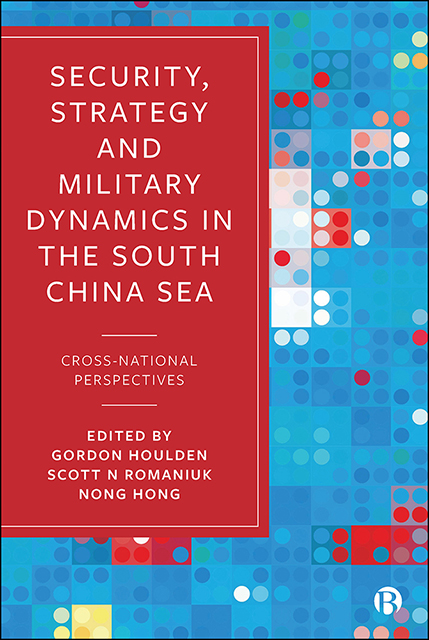Book contents
- Frontmatter
- Contents
- List of Tables
- Notes on Contributors
- Foreword
- Introduction: Strategic Challenges and Escalating Power Rivalry in the South China Sea
- 1 Between Competition and War: Complex Security Overlay and the South China Sea
- 2 The South China Sea as an Echo Chamber of Chinese Foreign and Security Policy
- Part I Claimants of the Contested South China Sea
- Part II Non-Claimants in Southeast Asia
- Part III Quadrilateral Security Dialogue States
- Part IV Non-Claimants in Europe and Eurasia
- Conclusion: Looking over the Horizon – Prospects for Settlement of the South China Sea Dispute?
- Index
7 - Competition, Contention, and Cooperation in the South China Sea: The Malaysian Perspective
Published online by Cambridge University Press: 13 April 2023
- Frontmatter
- Contents
- List of Tables
- Notes on Contributors
- Foreword
- Introduction: Strategic Challenges and Escalating Power Rivalry in the South China Sea
- 1 Between Competition and War: Complex Security Overlay and the South China Sea
- 2 The South China Sea as an Echo Chamber of Chinese Foreign and Security Policy
- Part I Claimants of the Contested South China Sea
- Part II Non-Claimants in Southeast Asia
- Part III Quadrilateral Security Dialogue States
- Part IV Non-Claimants in Europe and Eurasia
- Conclusion: Looking over the Horizon – Prospects for Settlement of the South China Sea Dispute?
- Index
Summary
Introduction
The South China Sea (SCS) is one of the most geostrategically contested maritime spaces. The long-standing overlapping territorial disputes among claimants including Brunei, China, Malaysia, Philippines, Taiwan, and Vietnam are complicated by the added element of US-Sino relations and their respective policies and strategies. China's emergence as a major economic power, the growth in military spending by Asian countries led by China, and the increasing attention by European nations in the SCS present a volatile mix that provides opportunities as well as posing threats to be negotiated. The almost 4 million square kilometres of the SCS provides regional states and the international community with a strategically important maritime highway for the transportation of goods and energy supplies, and forms a critical link between trading hubs and ports in Europe, South and Southeast Asia, and Northeast Asia. The SCS figures prominently as a link in the management of the world's energy supply network of marine routes that facilitate the economic, commercial, and strategic interests of many nations.
Apart from shipping, the SCS also forms a large portion of the area where international communication traffic is routed to facilitate commerce and other activities so essential for the world today. The use of the sea for these purposes must be well managed to check any untoward impact on the environment, marine biodiversity, and ecosystems. There is much need for prudent conservation and protection of these systems to ensure sustainable management and use of the sea and its resources. The conventional hydrocarbons are located in undisputed areas while most of the discovered fields are clustered in the uncontested parts, close to the shorelines of various countries. Among the claimant countries, Vietnam, Malaysia, and Brunei Darussalam have the highest oil and gas reserves in the sea.
Background to states’ territorial and maritime claims
Malaysia's maritime area is supported by all rights as provided by international law, particularly as set out under the United Nations Convention on the Law of Sea (UNCLOS). Malaysia's geographical areas of interest, as encapsulated in the Peta Baru Malaysia 1979, include rights to internal waters, territorial sea, continental shelf, exclusive economic zone (EEZ), and the airspace over applicable maritime zones. The maritime areas of Malaysia feature busy shipping sea lines of communication, such as the Straits of Malacca (SOM), the South China Sea (SCS), Sulu Sea and the Celebes Sea, and the Andaman Sea.
- Type
- Chapter
- Information
- Security, Strategy, and Military Dynamics in the South China SeaCross-National Perspectives, pp. 135 - 148Publisher: Bristol University PressPrint publication year: 2021



